
Culture
21:56, 14-Apr-2019
Fun facts about Water Splashing Festival in Asian countries
Updated
21:38, 17-Apr-2019
By Wu Yan
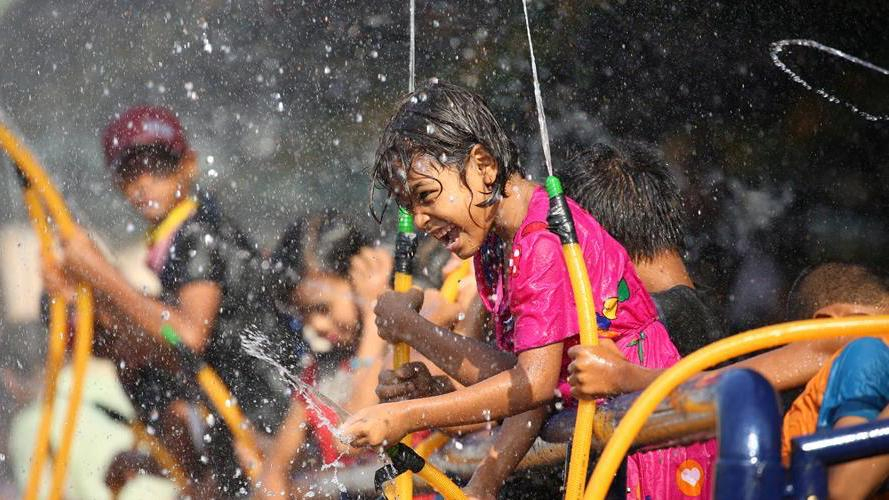
Many parts of Southeast and South Asia have started their grandest celebration this year.
During days of traditional Buddhist New Year celebration, people visit temples to pray for good fortune by pouring water on a Buddha statue in the morning, and then splash water on each other in a unique tradition that best represents the festival.
The origin of the festival
The name of the festival, whether it's called Songkran in Thailand or Thingyan in Myanmar, is derived from the Sanskrit word sankranti, referring to the shift of the sun's movement.
The day when the sun moves from Pisces into Aries in the zodiac, or the last day of the old year, marks the beginning of the festival. The second day of the festival, or sometimes together with the third day, constitutes transitional day(s) between the old year and the new year. And the new year arrives on the last day.
00:42
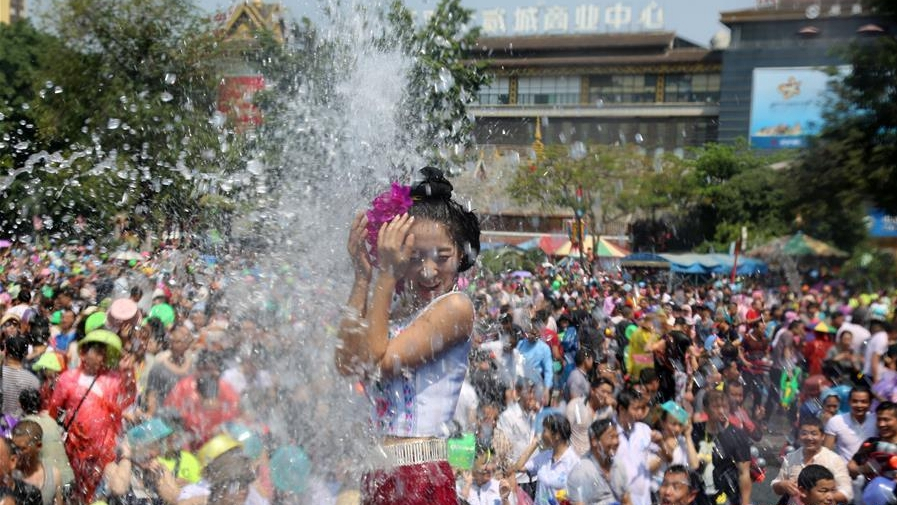
It is said that the tradition of water splashing comes from the following Hindu story.
A god challenged a clever boy with a riddle, taking each other's head as a stake. The boy won the bet by answering that the glory of men appears on the face in the morning, on the chest in the noon and on the feet in the night, so that people have to wash these body parts accordingly. The god's seven daughters cut his head off according to his promise.
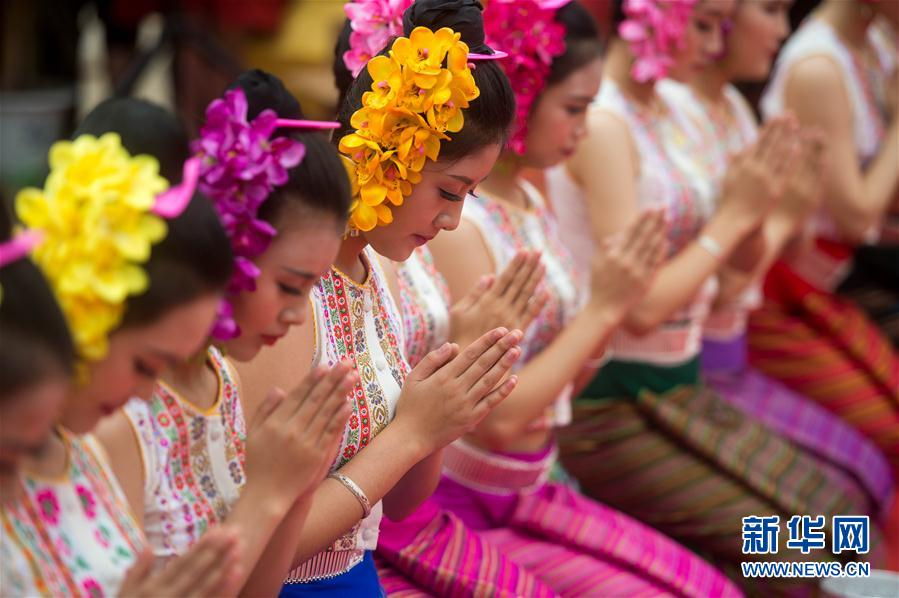
Dai women pray at a ceremony during Water Splashing Festival in Jinghong, Xishuangbanna Dai Autonomous Prefecture, southwest China's Yunnan Province, April 15, 2017. /Photo via Xinhua News Agency
Dai women pray at a ceremony during Water Splashing Festival in Jinghong, Xishuangbanna Dai Autonomous Prefecture, southwest China's Yunnan Province, April 15, 2017. /Photo via Xinhua News Agency
As the story spread, the ritual of using water to wash away one's sin and bad luck was developed.
In different countries and regions, the celebration displays distinctive characteristics.
China: Premier plays water with people
In China, Water Splashing Festival is celebrated by minority groups such as Dai, De'ang, Bulang and Achang.
Just like the Han people celebrating Spring Festival, those from ethnic minorities also have several days off from work during Water Splashing Festival to hold various activities, including singing and dancing, water splashing, boat racing and setting off firecrackers.
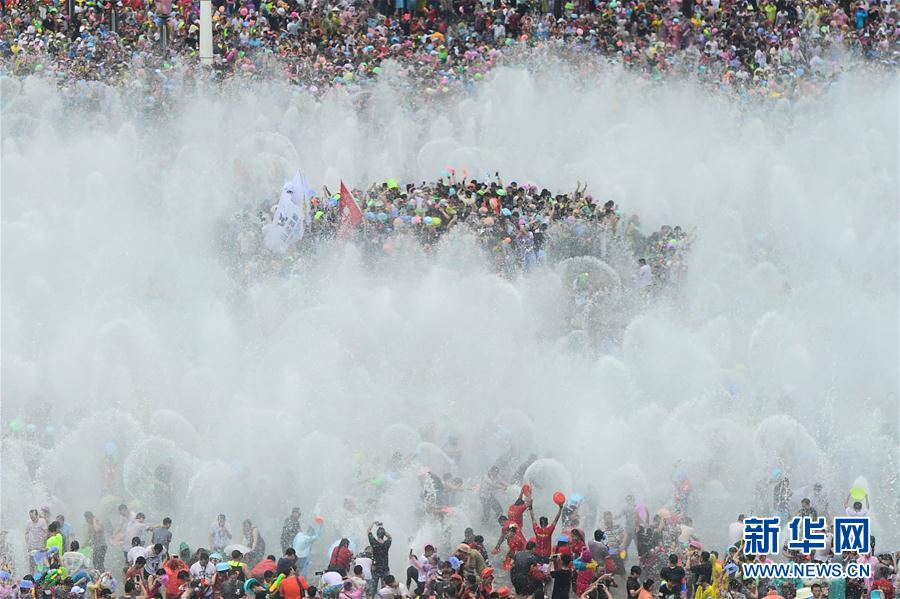
Among them, the one most well-known to Chinese people is the water-splashing ceremony held in Jinghong, Xishuangbanna Dai Autonomous Prefecture, southwest China's Yunnan Province, in 1961, when the late Premier Zhou Enlai, dressed in traditional Dai costume, joined in the activity with locals.
In Manting Park, Zhou sprayed his first basin of water to U Nu, the late Myanmar premier who was invited to visit China then. Later, Zhou attended another water-splashing celebration on the street and danced with locals.
Thailand: Elephants make it more fun
Songkran Festival is often regarded as the world's biggest water celebration, attracting more than a million tourists to participate every year.
Elephants, a prominent Thai symbol, undoubtedly play a role.
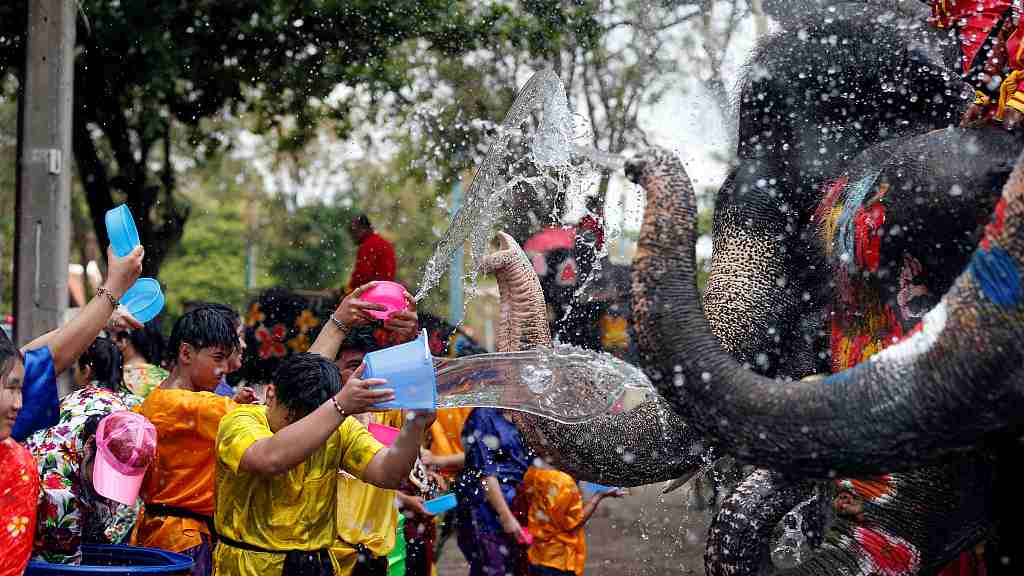
Elephants and people play with water during the celebration of Songkran Water Festival, to commemorate Thailand's New Year in Ayutthaya, Thailand, April 11, 2019. /VCG Photo
Elephants and people play with water during the celebration of Songkran Water Festival, to commemorate Thailand's New Year in Ayutthaya, Thailand, April 11, 2019. /VCG Photo
With colorful heart and flower patterns painted on their bodies, elephants use their trunks to spray water at people under the direction of their handlers, while local and foreign revelers return the exchange.
Myanmar: Make cosmetic paste for Buddha
Thanaka, a fragrant cosmetic paste made from ground bark, is used by Burmese on face and arms to smooth the skin, keep cool and protect them from sunburn.
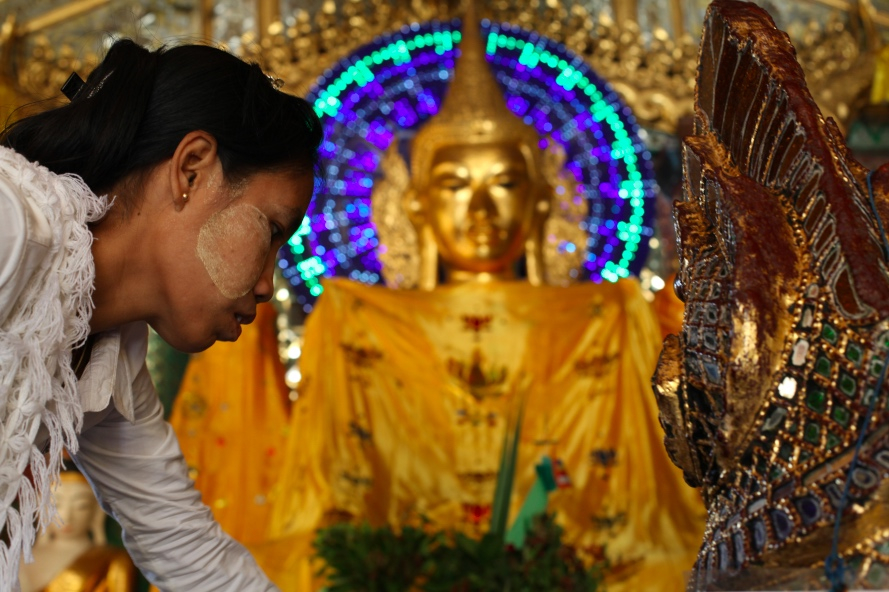
A file photo shows a woman wearing traditional thanaka makeup near a Buddha statue in Shwedagon, Myanmar. /VCG Photo
A file photo shows a woman wearing traditional thanaka makeup near a Buddha statue in Shwedagon, Myanmar. /VCG Photo
Before the Buddhist New Year, Burmese holds a competition on grinding thanaka, a type of traditional makeup, and the winner goes to the one who grinds the most.
After the competition, the thanaka on the ground are collected and will be used in the Buddha bathing ceremony during Thingyan Water Festival.
The video shows the Water Splashing Festival in Yunnan Province in China. /Cover by Xinhua, Video edited by Yang Jinghao.
(Top image: Children play during Thingyan Water Festival in Yangon, Myanmar, April 13, 2019. /Photo via Xinhua News Agency)

SITEMAP
Copyright © 2018 CGTN. Beijing ICP prepared NO.16065310-3
Copyright © 2018 CGTN. Beijing ICP prepared NO.16065310-3